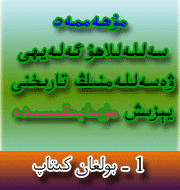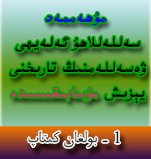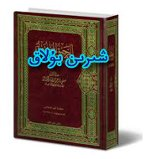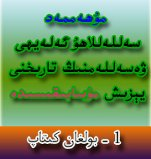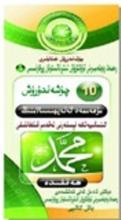رەھمەت پەيغەمبىرى تور بېكىتى
ئىسلام دۇنيا ئىتتىپاقى - رەھمەت پەيغەمبىرىگە ياردەم بېرىش ۋە تۇنۇشتۇرۇش خەلقئارالىق ھەيئىتى
An inimitable scripture
If one were to read an account of the life of the Prophet Muhammad (peace be upon him) written by a non-muslim, it is sometimes the case that that the author would claim or make mention albeit minutely that it was Muhammad (peace be upon him), himself, that wrote and composed the verses of the Qur'an. Needless to say, such a claim is quite erroneous when one is to consider the fact that Allah, in the Qur'an, put forth a challenge to produce something similar to his book.
Say: "If mankind and the Jinn were together to produce the like of this Qur'an, they could not produce the like thereof, even if they helped one another.'') (17:88)
Later, as a means to penetrate the hearts of those that opposed the message of Islam to it’s truthfulness, the challenge was reduced to not a whole book but instead ten chapters:
"And if you are in doubt concerning that which we have sent down to our slave, then produce a chapter of the like thereof and call your witnesses besides Allah, if you are truthful. But if you do it not, and you can never do it, then fear the fire whose fuel is men and stones, prepared for the disbeliever." (Qur'an 2:23-24)
This challenge was finally made even more simpler, in that all was needed in order to prove the falseness of the Qur’an was a single surah or chapter of the Qur’an:
“Or do they say: ‘He (Muhammad) has forged it’? Say: ‘Bring then a soorah (chapter) like unto it, and call upon whomsoever you like, besides Allah, if you are truthful!” [Yoonus 10:38]
During the era in which the aforementioned verse was revealed, the Arabs were highly skilled in the art of lingual expression and prose, rather, they were at their peak. The unique style of the language which the Qur'an presented captivated the Arabs to whom some of it's warnings were directed to for it was not written in the customary style or form, or the rhyming prose or poetic verses which were well known. Even though they possessed the most skilled speakers and orators they were unable to produce something with which to rival the Qur’an, had they been able to do so, they could have easily destroyed the call of Islam.
In order to comprehend some of the attempts which were made to answer this challenge, we may take a look at the poetry of Musaylimah, who, in his desire to present a scripture which could match or surpass the Qur’an wrote: “O frog, daughter of two frogs, croak as much as you want, your upper part is in the water and your lower part is in the mud.” Such nonsensical poetry was not nearly enough to enable his attempts at propagation to endure. In fact, it is even noteworthy to mention that as Musaylimah persisted in his foolhardy attempts at creating a ‘Qur’an of his own’ and even ascribing himself as a prophet, he would be permanently remembered by historians as Musaylimah al-Kathzab (the liar).
Some, on the other hand, boasted of their ability to meet the ‘Quranic challenge,’ but were ultimately unable to produce anything at all. Such was the case of An-Nadr bin Al-Harirth, whose arrogance is noted in the Qur’an:
“And when our recited to them, they say ‘we have heard this (the Qur’an); if we wish, we can say the like of this. This is nothing but tales of the ancients” (8:31)
In fact, the best An-Nadr was able to do was produce stories which he had heard during the course of his travels in Persia. Whenever the Prophet (peace be upon him) would leave an audience of listeners in which An-Nadr had been seated, in envy of the Prophet (peace be upon him) and the effect his divinely-revealed parables had on people, he would begin to narrate stories and thereafter arrogantly proclaim "who, by Allah, has better tales to narrate, I or Muhammad?'' The condition of such people is described by Ibn Katheer in his Tafseer of the aforementioned verse, he wrote that such people “only boasted in order to deceive themselves and those who followed their falsehood”.
Had the Qur’an been a product of a human-intellect it would have been difficult for the author to throw out such a challenge as he would have ultimately been exposed and consequently suffer the wrath of the people.
Before his conversion to Islam, Umar Ibn al-Khattab (may Allah be please with him), was considered by the Meccan idol-worshippers not only as wise and literate but a skilled composer of poetry in his own right. Rather than haughtily claiming Muhammad (peace be upon him) as the author of the Qur’an after listening to it, he was struck, not only by deep spiritual message but by the clarity of meaning and expression. He would never have taken such a large step such as embracing Islam and then facing the insolence of the Meccan idol-worshippers whom he lived and had grown up with for so long unless he was certain that no one could produce anything like it. Till now, that is fourteen centuries later, no one has been ever been able to say anything like the Qur’an, not even one surah.
Since the Qur’an is the word of the lord of the universe, Allah, such a thing is not possible as there does not exist anything which is like him. He bears no similarity to any of his creation, in his being, his character or his deeds. How then could the words of his creation be similar to his words? In summary, the Qur’an is just as Allah has spoken of it himself:
“Say: It has been sent down by him (Allah) who knows the secrets of the heavens and the earth, he is the oft forgiving, most merciful.” (25:6)
“a Book, the Verses whereof are perfected and then explained in detail from One Who is All-Wise and Well-Acquainted (with all things).” [Hud 11:1 – interpretation of the meaning].
References:
Al-Ashqar, Umar S., The Messengers and the Messages, IIPH, Riyadh, Saudi Arabia, 2003, p. 184.
Al-Athari, ‘Abdullah, Islamic Beliefs – a brief introduction to the ‘aqidah of ahl as-sunnah wal-jama’ah, IIPH, Riyadh, Saudi Arabia, 2005, p.93-94.
Ibn Kathir, Tafsir Ibn Kathir (Abridged), Darussalam, Riyadh, Saudi Arabia, 2000.
Ibn Kathir, The Miracles of the Prophet (peace be upon him), Dar Al-Manarah, Egypt, 2002, p. 5-8.
Strauch, Sameh, Miracles of the Messenger, Darussalam, Riyadh, Saudi Arabia, 2003, p.16.
http://www.islamqa.com/index.p
******

